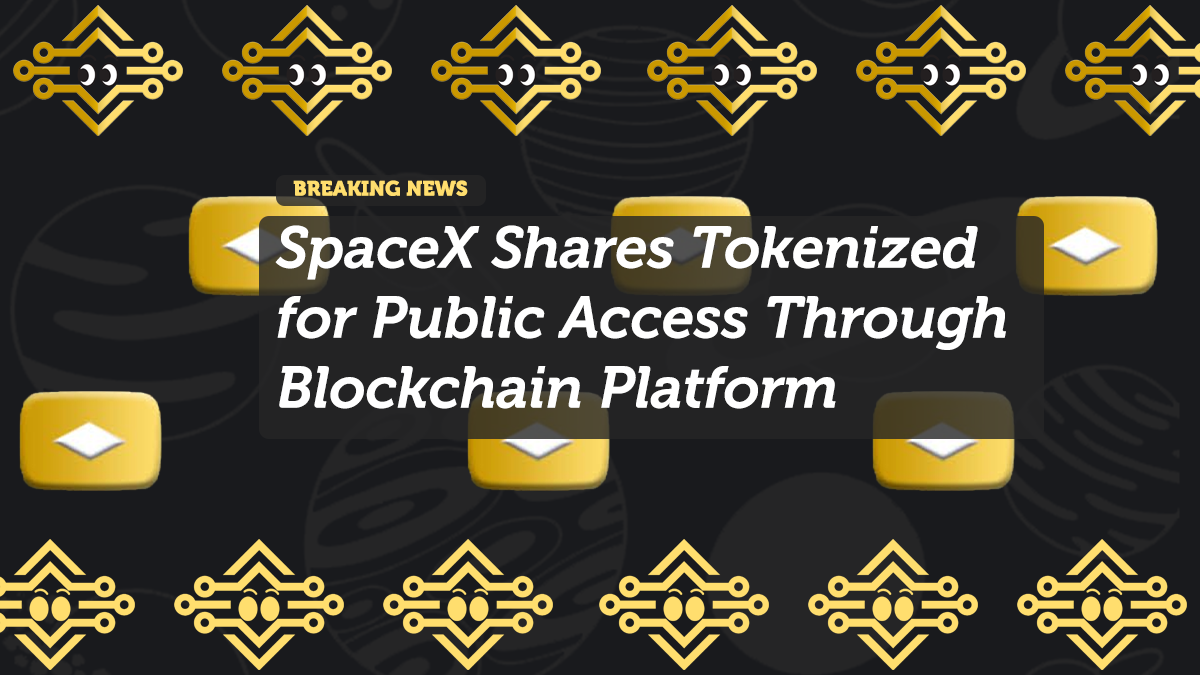
SpaceX Shares Tokenized for Public Access Through Blockchain Platform
One of the most elusive private investments in modern history—SpaceX—is finally within reach of everyday investors. But here’s the twist: you won’t find these shares on Nasdaq. Instead, you’ll be buying them through the blockchain.
In a historic move that could change how private equity is bought and sold, digital asset firm Securitize has launched a tokenized version of SpaceX shares. This marks the first time in history that SpaceX equity is available to the public through a regulated, blockchain-based secondary market.
Let’s break down what this means for crypto, private equity, and the broader investment landscape.
What Just Happened?
On June 26, Securitize confirmed it is offering tokenized shares in SpaceX through its marketplace, which is powered by the Avalanche blockchain. The shares come from existing equity holders—think early employees or investors—who are now able to sell their stakes to the public in a compliant and regulated manner.
This isn’t a SpaceX IPO (initial public offering), but it’s the closest thing to it we’ve ever seen.
How It Works
- Issuer: Securitize Markets
- Blockchain: Avalanche
- Asset: Tokenized equity in SpaceX
- Source: Secondary sale from existing holders (not new issuance)
- Eligibility: Accredited investors only (for now)
To participate, investors need to onboard through Securitize’s platform, undergo compliance checks (KYC/AML), and then trade the shares represented by blockchain tokens.
Each token represents a real-world share of SpaceX, held in a custodial structure that ensures legal compliance and investor protection.
Why This Is a Big Deal
Let’s get this straight: SpaceX is a private company valued at over $180 billion, and until now, owning its shares was almost impossible unless you were a venture capital firm, large institution, or one of Elon Musk’s inner circle.
This new tokenized route flips the script by:
- Democratizing access to ultra-exclusive private equity
- Creating a liquid secondary market where there wasn’t one before
- Leveraging blockchain to eliminate middlemen and reduce friction
- Validating tokenization as a mainstream capital markets solution
According to Securitize CEO Carlos Domingo, this is just the beginning. “We see tokenization as the next wave of equity investing,” he said.
Why Avalanche?
The Avalanche blockchain was selected for its high throughput and low transaction fees—critical for efficient equity transfers. It’s also become a favorite among institutions exploring regulated digital assets, thanks to its Subnet architecture, which supports KYC-compliant, permissioned environments.
What Are the Risks?
Let’s not ignore the fine print. These are still private shares, and that comes with several caveats:
- Liquidity is limited – You may not be able to sell your tokens quickly
- Only accredited investors can participate in this round
- SpaceX could still delay an IPO for years
- Share valuation is based on internal models or secondary sales, not open market trading
- Blockchain tokenization is still a relatively nascent infrastructure
However, for those willing to accept the risk, the reward is access to one of the most hyped tech companies on Earth—or off it.
What This Means for the Future
If this pilot works, we could see a flood of high-value private companies moving toward tokenized equity. Think:
- Stripe
- OpenAI
- Databricks
- Epic Games
This could give crypto’s smart contract tech a new and powerful use case: disrupting Wall Street’s private equity gatekeeping.
And with regulatory-compliant marketplaces now going live, the idea of a “tokenized Nasdaq” is no longer science fiction—it’s just a matter of when.
Final Thoughts
SpaceX shares on the blockchain? That’s a sentence that would’ve sounded crazy just a few years ago. But today, it’s real—and it could reshape how we invest in the world’s most ambitious tech companies.
Whether you’re bullish on tokenization or just intrigued by SpaceX, this marks a significant inflection point in how capital flows—and who gets to participate.










